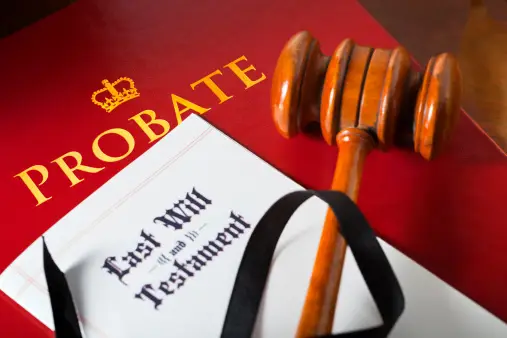Understanding Property Division in Estate Planning
Property division is a critical aspect of estate planning that determines how assets are distributed among heirs after one's death. It involves various legal considerations, including state laws and the specific wishes outlined in a will or trust.
For instance, in Texas, property can be classified as community or separate property, which significantly influences how it is divided. Properly addressing these classifications in your estate plan can prevent disputes and ensure that your assets are allocated according to your intentions.
Common Mistakes in Estate Planning
Many individuals make common mistakes when planning their estates, which can lead to complications during probate. These mistakes often include failing to update wills, not designating beneficiaries, or overlooking tax implications.
For example, neglecting to review and revise your estate plan after major life events, such as marriage or the birth of a child, can result in unintended distributions. Consulting with an estate planning attorney can help you avoid these pitfalls and create a more effective plan.
Benefits of Creating a Trust
Establishing a trust can offer several advantages in estate planning, including avoiding probate, maintaining privacy, and providing for minor children or dependents. Trusts can be tailored to fit individual needs, making them a versatile option for asset management.
For instance, a revocable living trust allows you to retain control over your assets during your lifetime while ensuring a smooth transfer to your beneficiaries upon your death. This can simplify the estate administration process and reduce the burden on your loved ones.
Steps to Take After a Loved One Passes Away
After the death of a loved one, there are essential steps to follow to manage their estate effectively. This includes locating the will, notifying beneficiaries, and initiating the probate process if necessary.
Additionally, understanding the deceased's financial obligations and settling debts is crucial. Engaging with an experienced attorney can provide guidance through this complex process, ensuring that all legal requirements are met and that the estate is handled efficiently.
Understanding Property Division in Estate Planning
Property division is a critical aspect of estate planning that determines how assets are distributed among heirs after one's death. It involves various legal considerations, including state laws and the specific wishes outlined in a will or trust.
For instance, in Texas, property can be classified as community or separate property, which significantly influences how it is divided. Properly addressing these classifications in your estate plan can prevent disputes and ensure that your assets are allocated according to your intentions.
Common Mistakes in Estate Planning
Many individuals make common mistakes when planning their estates, which can lead to complications during probate. These mistakes often include failing to update wills, not designating beneficiaries, or overlooking tax implications.
For example, neglecting to review and revise your estate plan after major life events, such as marriage or the birth of a child, can result in unintended distributions. Consulting with an estate planning attorney can help you avoid these pitfalls and create a more effective plan.
Benefits of Creating a Trust
Establishing a trust can offer several advantages in estate planning, including avoiding probate, maintaining privacy, and providing for minor children or dependents. Trusts can be tailored to fit individual needs, making them a versatile option for asset management.
For instance, a revocable living trust allows you to retain control over your assets during your lifetime while ensuring a smooth transfer to your beneficiaries upon your death. This can simplify the estate administration process and reduce the burden on your loved ones.
Steps to Take After a Loved One Passes Away
After the death of a loved one, there are essential steps to follow to manage their estate effectively. This includes locating the will, notifying beneficiaries, and initiating the probate process if necessary.
Additionally, understanding the deceased's financial obligations and settling debts is crucial. Engaging with an experienced attorney can provide guidance through this complex process, ensuring that all legal requirements are met and that the estate is handled efficiently.


